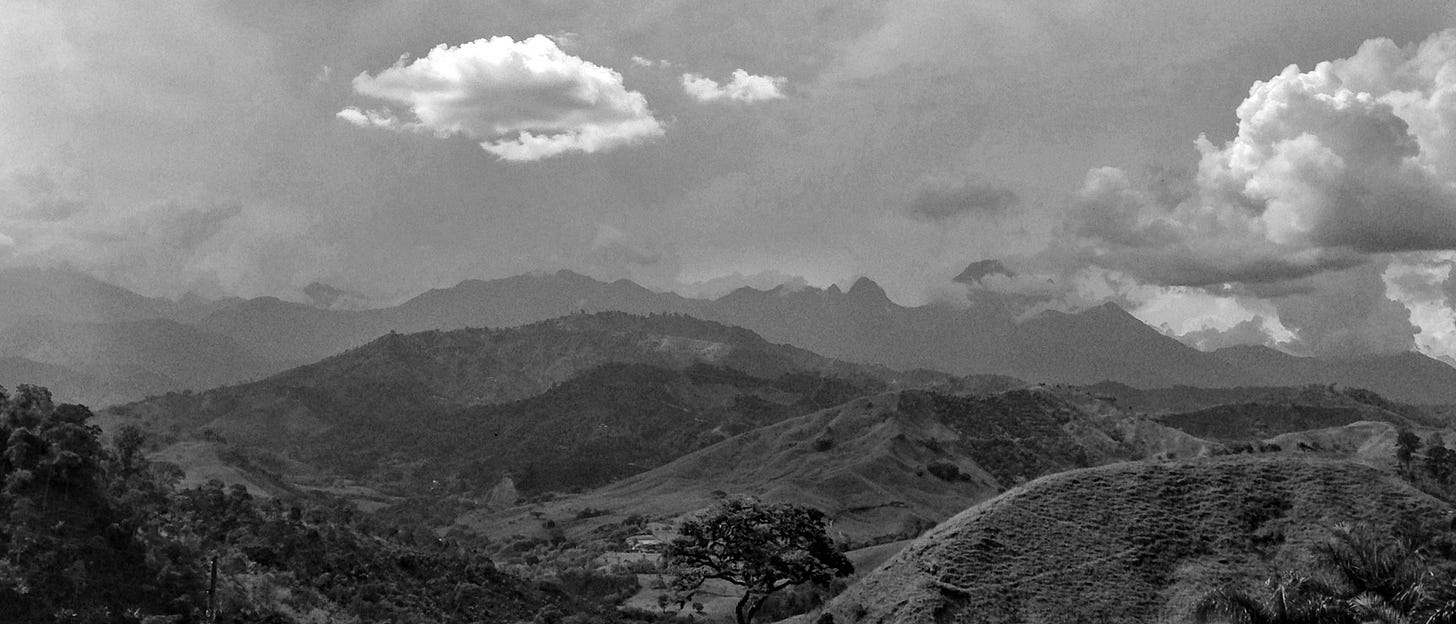Coffee News Roundup: Week Ending April 30th
This week, Colombian researchers have discovered new variants of the dreaded coffee leaf fungus, and Starbucks isn't worried about a labor shortage due to the high "energy and spirit" of its employees
Hello and welcome to another Coffee News Roundup, coming to you from a very spring-like corner of Southeast Michigan. Unfortunately spring, my favorite time of year, lasts approximately nine days in Michigan before we dive headfirst into heat and humidity.
Let’s see what’s been happening in the world of coffee.
Colombian Researchers Discover Aggressive New Variants Of Coffee Leaf Rust - Via Daily Coffee News
Cenicafé, Colombia’s national coffee research institution, has issued a warning to producers after the discovery of aggressive new variants of the coffee leaf rust fungus.
In total, researchers have pinpointed six new races (or subspecies) plus nine new variants of the hugely devastating disease. Not that they’re particularly surprised by the mutations: “This selection and reaction pressure is a normal dynamic biological process of the fungus, trying to adapt to survive,” said one of the researchers, Carlos Ariel Ángel. “Hence, just over 50 races have been identified in the world and variants continue to be identified in different countries.”
Although 84% of the country’s coffee crop already comprises disease-resistant varieties, the Colombian Coffee Growers Federation (FNC) is encouraging its members to plant or replant with coffee leaf rust-resistant varieties such as Castillo, Cenicafé 1, Castillo zonales or Tabi.
All of these, Daily Coffee News points out, “not coincidentally, have been developed and disseminated at different times by the FNC and Cenicafé.”
Starbucks CEO Says The Worker Shortage Plaguing Restaurants Won't Hurt The Coffee Chain Because Its Employees' 'Energy And Spirit Is High' - Via Business Insider
I can’t decide if this counts as coffeewashing (that is, using sustainable or social coffee investments to burnish a company’s reputation).
Did you know there’s a worker shortage “plaguing” restaurants? Well, that’s what the restaurant industry wants you to think, anyway.
But that’s not Starbucks’ problem. No, workers at Starbucks have high energy and spirits, according to CEO Kevin Johnson. "We decided to give our partners economic certainty through that period,” Johnson said on a recent earnings call. “We did not do any involuntary layoffs or furloughs.”
Which is true. Starbucks also recently announced that it plans to up its minimum wage to $15, and the company does offer better benefits than many of its rivals, including an expansive trans healthcare policy and paid sick and parental leave. During a pandemic, health insurance is quite an attractive perk.
At the same time, however, Starbucks’ much trumpeted hazard pay was quietly withdrawn a couple of months after it was introduced (and after the positive press had been received). Employees have had to deal with understaffing, as well as belligerent customers. As one barista told Business Insider for a previous story about the company’s “perks”, “We didn't ask for a meditation app, we want to be able to pay our rent.”
In the same presentation, Starbucks reported a “sales jump” in the second quarter, up 11% from the previous year. Consolidated net revenue was $6.7 billion over 13 weeks—but they couldn’t keep the hazard pay going while the pandemic continues unabated in much of the world.
More Headlines
What Researchers Learned From The Remarkable Stenophylla Tasting
Starbucks Is Launching A Premium Version Of Its Instant Coffee
Cup of Excellence And Coffee Knowledge Hub Form Global Partnership
The Week In Coffee Unionizing
This in depth article in Eater Chicago does a good job of summarizing the recent unionization push at Colectivo Coffee, with a title that says it all: “Colectivo Coffee’s Expensive, Vindictive Yearlong Battle to Grind Down an Employee Unionization Effort”.
The piece highlights the discrepancies between the owners’ professed “progressive values” and the ferocity of the anti-union backlash—including hiring an expensive “union avoidance” company, a barrage of anti-union meetings, emails, and videos, and alleged termination of organizers.
The Week In Corporate Coffeewashing
According to Fair Trade USA, there has been “a greater shift toward transparent and ethical sourcing” in retail goods that include coffee. The article mentions Aldi’s private label coffee brands, Barissimo and Simply Nature, that by the end of 2022 will join “more than 40 coffee products currently certified as sustainable by approved third-party organizations, including Fair Trade USA.”
The expansion is part of Aldi’s “new sustainability charter, which commits to protecting the planet and ecosystems by 2030.”
It’s here that, as always, we point out that Aldi’s revenue in 2018 was $91.9 billion. It’s good that they’re upping their sustainability quotient, but at that size (and with that level of income) they should be doing a lot more.
Is Coffee Good For You?
Your genes might have a lot to do with your coffee consumption, if a new study out of Australia is to be believed.
Looking at data from 400,000 people in the UK Biobank, the researchers cross-referenced blood pressure and heart rate markers with reported coffee intake, and found that “people with high blood pressure, angina, and arrhythmia were more likely to drink less coffee, decaffeinated coffee or avoid coffee altogether compared to those without such symptoms, and that this was based on genetics.”
According to the researchers, this shows that coffee consumption is at least partly due to genetic predisposition. Says lead author Professor Elina Hyppönen, “people subconsciously self-regulate safe levels of caffeine based on how high their blood pressure is, and this is likely a result of a protective genetic a mechanism.”
What To Read
In Search Of Hot Coffee, These Geeks Created The World's First Webcam by S.C. Stuart
Until next week, drink good coffee. Be extra nice to (and tip) your barista.






